
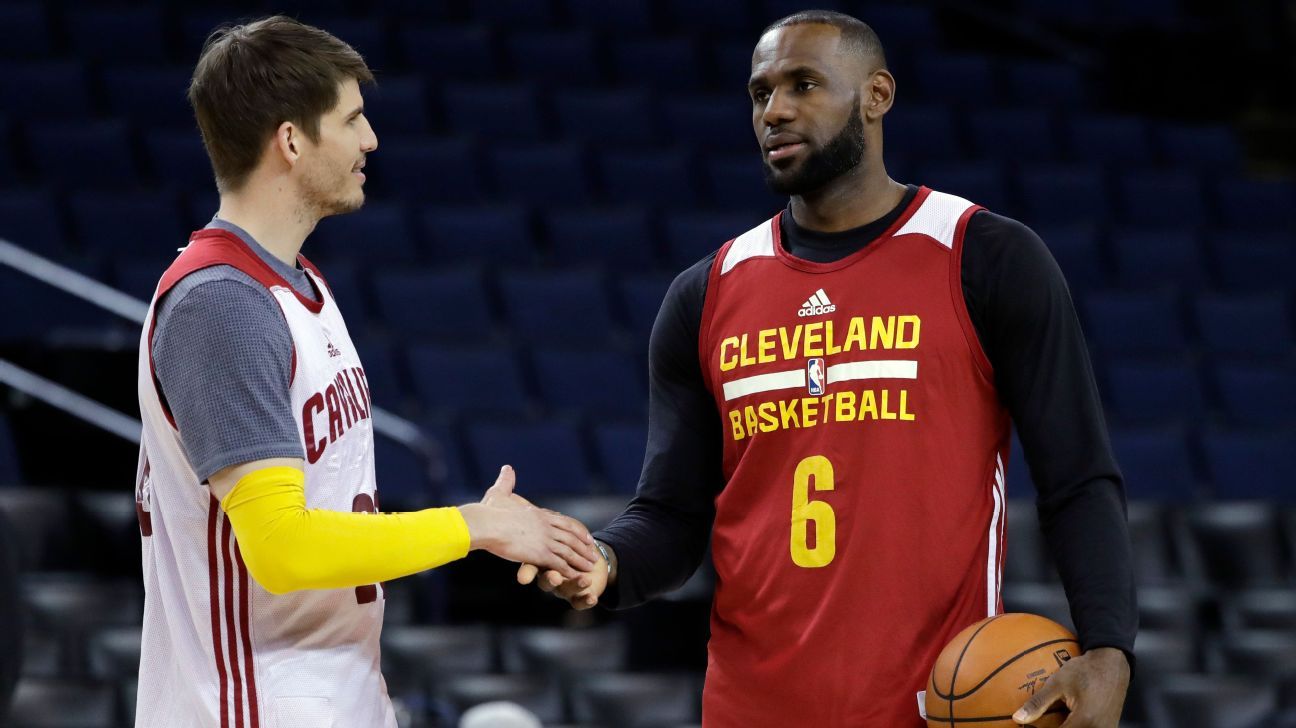
Utah Jazz guard Kyle Korver, in a first-person piece published Monday on The Players' Tribune, reflected on race relations in America and pondered his position as a white man playing in the NBA.
In the piece titled "Privileged," Korver touched on a variety of race-related topics and shared his own experiences, citing a 2015 arrest of a teammate and a racial incident last month involving Thunder star Russell Westbrook and a fan in Utah.
"There's an elephant in the room that I've been thinking about a lot over these last few weeks," Korver wrote. "It's the fact that, demographically, if we're being honest: I have more in common with the fans in the crowd at your average NBA game than I have with the players on the court."
Korver mentioned his "privilege" on multiple occasions in the piece, writing that, as a white man, he has the option to engage or disengage in the fight against racism.
"What I'm realizing is, no matter how passionately I commit to being an ally, and no matter how unwavering my support is for NBA and WNBA players of color ... I'm still in this conversation from the privileged perspective of opting in to it," he wrote. "Which of course means that on the flip side, I could just as easily opt out of it. Every day, I'm given that choice -- I'm granted that privilege -- based on the color of my skin."
LeBron James, a former teammate of Korver, praised the piece on Twitter.
Salute my brother!! Means a lot. And like you said I hope people listen, just open your ears and listen. ??‼️‼️ https://t.co/qBrd2H27x0
— LeBron James (@KingJames) April 8, 2019
Korver, 38, is about to complete his 16th season in the NBA. He was a member of the Atlanta Hawks in 2015 when teammate Thabo Sefolosha was arrested in New York City for allegedly interfering with a crime scene.
Sefolosha suffered season-ending leg injuries during his arrest and, later that year, was found not guilty on all three misdemeanor charges stemming from the incident.
Korver wrote that he was "embarrassed" by his initial reaction in 2015 to learning about Sefolosha's arrest, saying that his "first thought was: 'What was Thabo doing out at a club on a back-to-back?'"
"Before I knew the full story, and before I'd even had the chance to talk to Thabo ... I sort of blamed Thabo," Korver wrote.
Korver also recounted his role in the Jazz's team discussion about the March 11 incident at Vivint Arena in Salt Lake City, where Westbrook shouted, "I'll f--- you up" to Jazz fan Shane Keisel in response to Keisel telling him, "Get on your knees like you're used to."
Westbrook, who considered the comment "completely disrespectful" and "racial," was fined $25,000 by the NBA, while Keisel was permanently banned from the arena.
Korver said the "incident struck a nerve with our team," prompting a closed-door meeting the next day with Jazz president Steve Starks.
"This wasn't the first time they'd taken part in conversations about race in their NBA careers, and it wasn't the first time they'd had to address the hateful actions of others," Korver wrote. "And one big thing that got brought up a lot in the meeting was how incidents like this -- they weren't only about the people directly involved. This wasn't only about Russ and some heckler. It was about more than that.
"It was about what it means just to exist right now -- as a person of color in a mostly white space.
"It was about racism in America."
Korver also discussed his own feelings of guilt and responsibility and listed several ways that he, as a white player in the NBA, can help deal with forms of racism.
"I know that, as a white man, I have to hold my fellow white men accountable," Korver wrote."We all have to hold each other accountable.
"And we all have to be accountable -- period. Not just for our own actions, but also for the ways that our inaction can create a 'safe' space for toxic behavior."
Tagged under
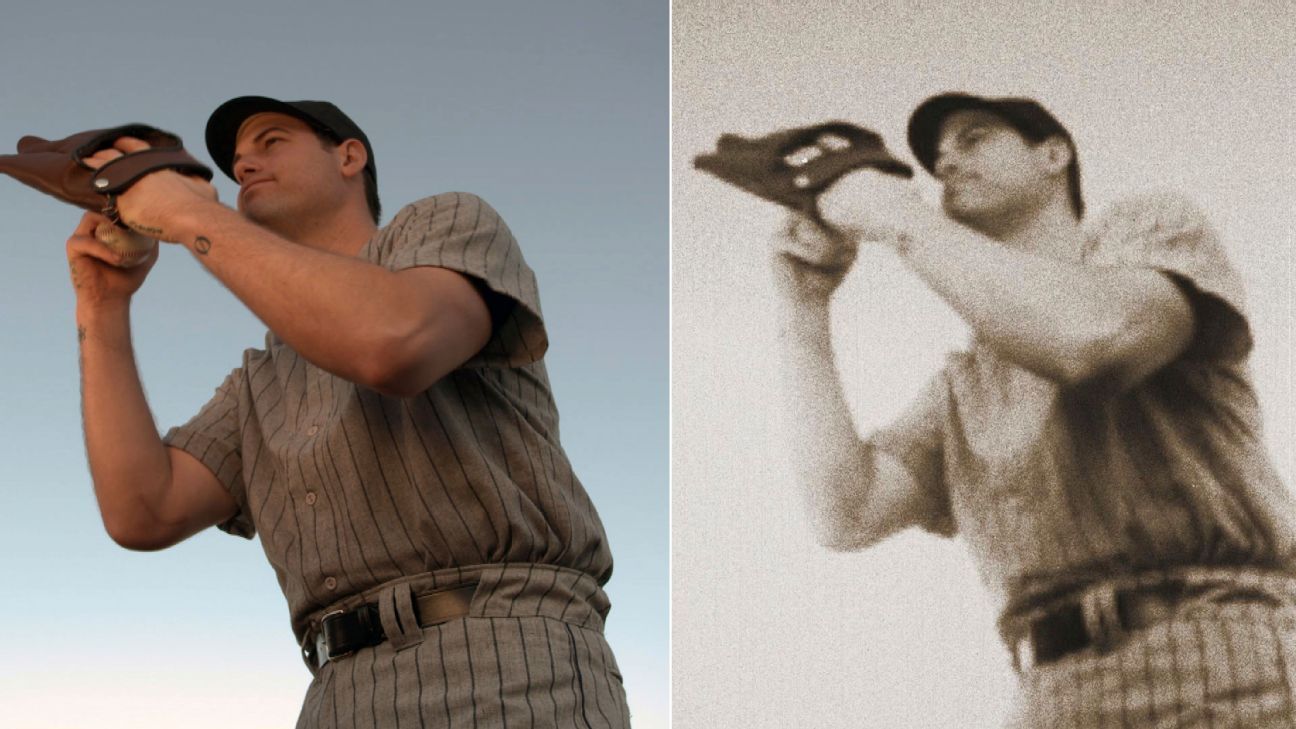
NEW YORK -- Adam Ottavino took the mound, wearing a flannel uniform and a glove half the size of his regular leather.
Up to the plate stepped Babe Ruth, the Sultan of Swat himself. The Bambino hit five thunderous drives as the pitcher turned his head to watch the balls soar.
Hey, Babe: Facing baseball's most famous hitter was not quite the breeze Ottavino envisioned.
"What a nightmare," the pitcher says, popping up in bed and breathing hard.
Back in December, Ottavino told MLB.com's Statcast podcast, "I would strike Babe Ruth out every time."
A month later, the native New Yorker signed with a $27 million, three-year contract with the Yankees, who view Ruth as a deity. Within days, the team approached Ottavino about making a commercial in which he pitches to Ruth with catastrophic consequences.
"I thought it was a good idea, just to show that I can make fun of myself," the 33-year-old right-hander said.
Brian Spector, senior executive producer of Yankees productions, developed the idea with his staff and shot the 45-second commercial early during spring training in Tampa, Florida.
"Pretty funny," manager Aaron Boone said.
New York found archival footage of Ruth and shot new material with Ottavino on a back lot behind third base at Steinbrenner Field in Tampa and at a nearby hotel room of a YES Network employee.
The new video, shot digitally at the standard 30 frames per second with a Sony FS7 camera, was edited with Adobe After Effects software over three days.
"Threw a sepia tone on it, changed the frame rate down to a 12-frame-a-second type feel, kind of how it was back then, added a lot of grain, changed the saturation levels, added a lot of effects to kind of dirty it up," Spector said.
Ottavino played his part for an hour each on two mornings in February before position players reported.
"I was curious to see which direction they would go with it because we did so many iterations," he said. "There's so many different lines that were fed to me, so I didn't know what was going to come out of it."
New York ordered old-style uniforms and found the caps and gloves online.
"Did I really say I could strike out Babe Ruth every time?" Ottavino said as the commercial opens. "He's sooo much bigger in person. He's currently hitting .370? And why is right field so short -- 295? Oh, it's 490 to center, at least. Wait, how did I get here?"
After the home run barrage, the commercial switches to color.
"What a nightmare," Ottavino says.
He pitched to Yankees catcher Austin Romine for "Ottavino's Nightmare," which aired during YES's opening-day pregame show.
Outtakes were posted on YouTube. Romine kept trying to get Ottavino to crack up in laughter.
"Let's pitch around him next time, see?" the catcher deadpanned. "Man, this dream's really giving me the heebie-jeebies."
And then he went to the mound and said: "Did you see how far that went?" pointing with his mitt.
Ottavino concluded: "This is humiliating."
"He was talking like an old-timey voice," the pitcher later recalled. "I had a hard time keeping my face straight,"
Romine still chucked about it two months later.
"It was a blast," he said.
Spector, a 38-year-old specializing in graphics, worked for YES in 2007 and joined the Yankees in 2011. His team of 12 considers about 15-20 concepts annually and creates a few each year for Yankees On Demand.
Among the most memorable was a 2015 spot with Brett Gardner, Dellin Betances, Jacoby Ellsbury, Didi Gregorius, Chase Headley, Brian McCann and CC Sabathia recreating a scene from the 1993 movie "The Sandlot." That was part of series of recreations that included "Step Brothers" with Gregorius and Starlin Castro (2016) and "The Hangover" with Gregorius, Castro and Matt Holliday (2017).
Parody commercials have featured Aroldis Chapman and Betances in "Relief Heating Company" (2018) and "Bronx Yard Work" with Aaron Judge and Giancarlo Stanton (this year).
Spector considered Ottavino an ideal actor.
"He nailed it," he said.
Tagged under
Kings XI Punjab opt to bowl; Kane Williamson sits out again
Published in
Cricket
Monday, 08 April 2019 07:22
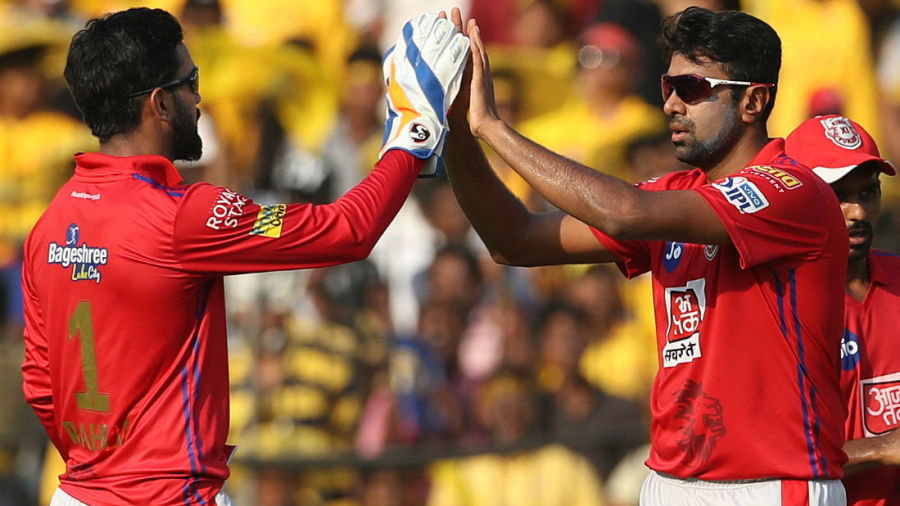
Toss Kings XI Punjab opt to bowl v Sunrisers Hyderabad
Sunrisers Hyderabad's stand-in captain Bhuvneshwar Kumar called heads and it landed tails. This allowed R Ashwin the luxury of chasing - a common trend this season - as Kings XI Punjab look to maintain their perfect home record in IPL 2019.
Ashwin made two changes - largely dictated by conditions - to the side that botched a run chase against Chennai Super Kings two nights ago. Mujeeb Ur Rahman and Ankit Rajpoot, who is playing his first match since Kings XI's season opening win over Rajasthan Royals at Jaipur, replaced legspinner M Ashwin and Andrew Tye.
As for Sunrisers, Kane Williamson continues to recuperate from a lingering shoulder injury. This allowed them to remain unchanged from the side that was blown away by Mumbai Indians' Alzarri Joseph on Saturday - he took 6 for 12, the best figures in IPL history.
Kings XI Punjab XI: 1 KL Rahul (wk), 2 Chris Gayle, 3 Mayank Agarwal, 4 Sarfaraz Khan, 5 David Miller, 6 Mandeep Singh, 7 Sam Curran, 8 R Ashwin (capt), 9 Mohammed Shami, 10 Ankit Rajpoot, 11 Mujeeb Ur Rahman
Sunrisers Hyderabad XI: 1 David Warner, 2 Jonny Bairstow (wk), 3 Vijay Shankar, 4 Manish Pandey, 5 Deepak Hooda, 6 Yusuf Pathan, 7 Mohammad Nabi, 8 Rashid Khan, 9 Bhuvneshwar Kumar, 10 Siddharth Kaul, 11 Sandeep Sharma
Tagged under
Iqbal Imam appointed Pakistan women's batting coach
Published in
Cricket
Monday, 08 April 2019 07:52
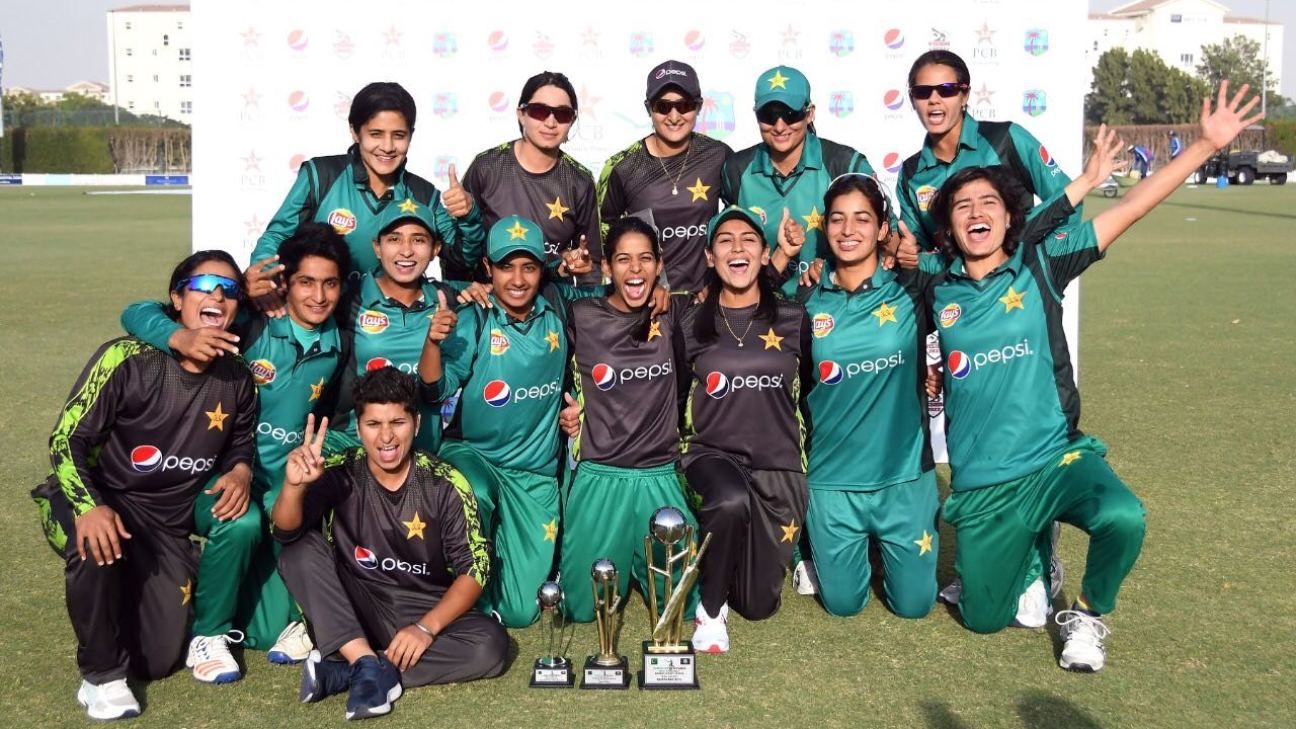
The Pakistan women's team will have a new batting coach for their upcoming ICC Championship fixture against South Africa. Former Pakistan first-class cricketer and coach Iqbal Imam has put in charge of the batsmen, replacing Andy Richards.
A statement from the PCB said Imam's appointment had been made "in light of the PCB's vision and strategy to invest further into women's cricket and to help the women batters improve on their overall performance and become one of top performing sides in the world".
Imam takes charge of the batting with a stellar coaching resume behind him. He is currently the head coach of the Karachi region, and was one of Sharjeel Khan's coaches when he made his international debut, with both hailing from Hyderabad. He had also served as the assistant coach of the Pakistan A team, the Under-19 team and the women's U-17 team.
In a 15-year domestic career, Imam played 262 first-class and List-A games, scoring 8,439 runs and taking 219 wickets with his right-arm offbreaks. He will join the team's training camp in Karachi, which begins on 9 April under head coach Mark Coles. They depart for South Africa on 29 April for three ICC Women's Championship ODIs on May 6, 9 and 12, which will be followed by five T20Is on May 15, 18, 19, 22 and 23.
PCB managing director Wasim Khan said: "Iqbal is a hardworking and committed batting coach who fits perfectly in the PCB's vision for women's cricket, which is to provide them with skilled individuals who will add significant value to both their development and performances.
"Iqbal's appointment is also testament to the PCB's commitment to reward and promote all the top performers, while also creating merit-based coaching opportunities for talented Pakistani coaches.
"The tour to South Africa is an important one as our team will like to build on their success against the Windies and move up the points table. In addition to this, this challenging tour also provides a chance for the Pakistan girls to prepare for next year's ICC Women's T20 World Cup 2020."
Tagged under
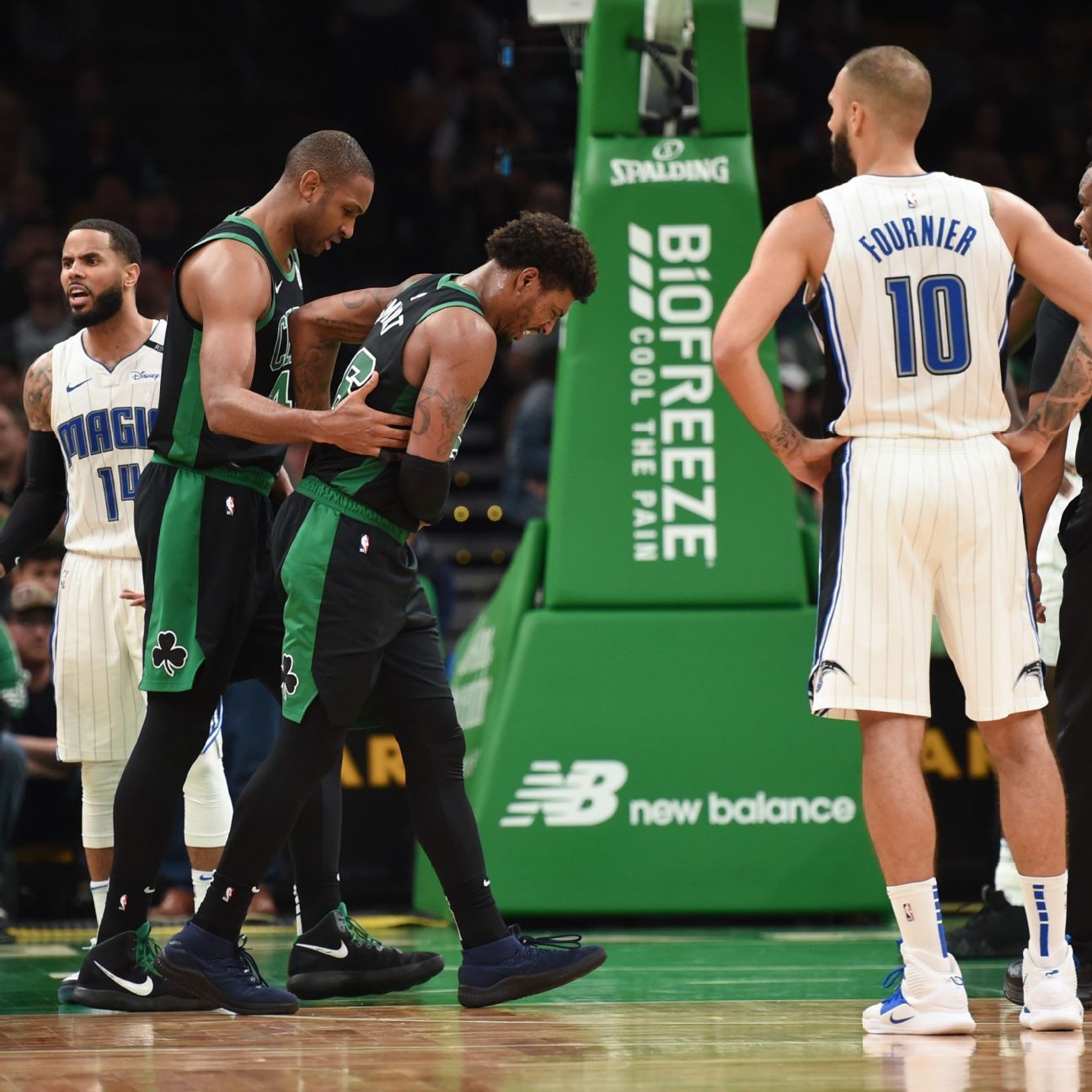
BOSTON -- The Boston Celtics know who they will play in the first round of the NBA playoffs.
Now they have to wait to find out if a couple of injured Celtics will be ready when Boston's postseason begins here against the Indiana Pacers next weekend.
Not only did the Celtics lose to the Orlando Magic at TD Garden on Sunday night 116-108, but Boston also lost guard Marcus Smart and forward Jayson Tatum to injuries. Smart sustained a left oblique strain, a source told ESPN's Adrian Wojnarowski, though coach Brad Stevens called it a bruise. Tatum has a left shin contusion.
Both players left the game early and didn't return and were not in the locker room when reporters entered it postgame. Judging by Stevens' postgame comments, neither -- along with several other Celtics mainstays -- will be playing in Boston's season finale Tuesday in Washington.
"The point of tonight was to try to -- because we won't play [a playoff game] 'til Saturday, maybe Sunday -- was to get a true game for some of our starters and our top seven or eight guys," Stevens said. "But those guys will play a lot less on Tuesday, if at all."
The much more immediate concern, however, was over the status of Smart and Tatum. Smart, in particular, looked concerning given the odd circumstances under which he got hurt. After chasing Evan Fournier down the lane, Smart bumped into Magic center Nikola Vucevic and crashed to the ground, holding his side.
Boston eventually called a timeout and Smart limped to the bench -- only to convince the training staff that he was all right and could stay in the game. But after the Celtics had the ball for one offensive possession -- a possession on which Smart was clearly moving gingerly -- Smart called for the bench to replace him as he limped back on defense before falling to the ground, holding his side.
"He felt like it was spasming on that second trip down the court," Stevens said.
Smart would eventually get to his feet and hobble to the locker room with help from the trainers.
"We'll see what that looks like tomorrow," Stevens said. "He was a little sore but was walking around, which was good, in the locker room."
Stevens said Tatum, on the other hand, had been dealing with the shin contusion even before Sunday's game, but that he had gone through shootaround and pregame workouts without any issues.
That changed, however, once the game began, and Tatum exited for good after just six minutes.
"It was never told to me as it was something that would keep him from playing," Stevens said. "He did the whole shootaround this morning, he got warmed up, he did his whole workout, and he felt great.
"[But] for whatever reason, when he jumped in the first quarter, he felt it."
Tagged under
NBA Power Rankings: Plenty at stake in the season's final three days
Published in
Basketball
Sunday, 07 April 2019 15:09
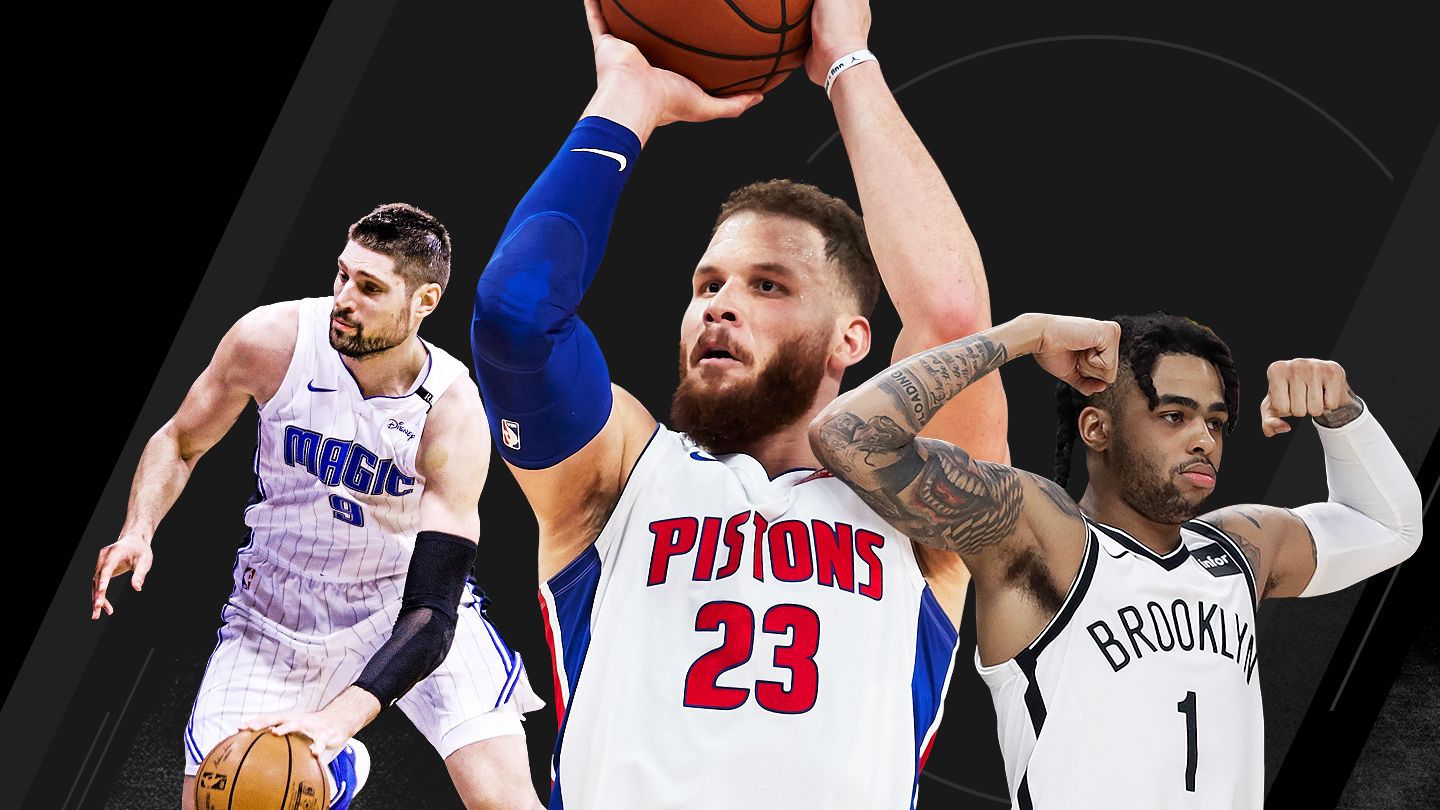
Here we are: the final three days of the 2018-19 regular season. With 15 playoff tickets punched, which East squad -- the Detroit Pistons, Miami Heat or Charlotte Hornets -- will be the final team in the tournament?
Our panel (ESPN's Kevin Arnovitz, Tim MacMahon and Andre' Snellings, The Undefeated's Marc J. Spears and FiveThirtyEight's Chris Herring) is ranking all 30 teams from top to bottom, taking stock of which are playing the best basketball and which are looking most like title contenders.
Previous rankings: Week 25 | 24 | 23 | 22 | 21 | 20 | 19 | 18 | 17 | 16 | 15 | 14 | 13 | 12 | 11 | 10 | 9 | 8 | 7 | 6 | 5 | 4 | 3 | 2 | 1 | Training camp | Free agency
1. Milwaukee Bucks
Record: 60-21
Giannis Antetokounmpo put an exclamation point on his season, logging a 45-point, 13-rebound, six-assist, five-block stat line in a shining, MVP-level performance that led Milwaukee to victory over the Sixers on Thursday. Voters have a fantastic pair of players to choose from in Antetokounmpo and James Harden. But it will be a tough, uphill battle for the reigning MVP Harden, given that the ascending Bucks will finish with the NBA's best record (60 wins as of Monday), with Antetokounmpo highlighting his elite, two-way balance by likely making All-Defensive First Team. -- Herring
2. Golden State Warriors
Record: 56-24
The Warriors clinched the No. 1 seed in the Western Conference with a win over the Clippers on Sunday. Even so, Tuesday's game at New Orleans will matter to center DeMarcus Cousins, as he returns to play his former Pelicans squad for the first time since they declined to make him a contract offer when free agency began July 1. When asked if he will be playing at New Orleans, Cousins said: "Oh, for sure." -- Spears
3. Houston Rockets
Record: 53-28
Coach Mike D'Antoni has repeatedly said that his biggest regret from his Phoenix tenure is that he didn't push the Suns' 3-point shooting to the extreme. He has made up for that in Houston, as the Rockets have shattered NBA records for 3-pointers made and attempted in each of D'Antoni's three seasons at the helm. The Rockets' league ranks in offensive efficiency in those three seasons: second, first, second. -- MacMahon
4. Toronto Raptors
Record: 57-24
The Raptors await the outcome of the battle royale being waged among the Eastern Conference second division, all the while finding more reps for their projected playoff starting lineup. The five-man unit of Kyle Lowry, Danny Green, Kawhi Leonard, Pascal Siakam and Marc Gasol has logged 161 minutes in 14 games together and rates a plus-12.2 points per 100 possessions. The only projected playoff starting lineup that has been better belongs to the Sixers. -- Arnovitz
5. Denver Nuggets
Record: 53-27
The Nuggets are slotted in as No. 2 in the West, a huge step up for a team that missed the playoffs last season. The Nuggets had an outstanding regular season, led by rising superstar Nikola Jokic, who should earn his first All-NBA nod this season. The Nuggets enter the postseason favored to win at least one round, with a legitimate chance to make a run to the Western Conference finals. -- Snellings
6. Utah Jazz
Record: 49-31
The Rockets are the only team with a better record since the All-Star break than the Jazz, who lost Sunday for only the second time in the past 14 games. But Utah has significant health concerns as the playoffs near. Starters Ricky Rubio and Derrick Favors and key reserves Jae Crowder, Kyle Korver and Raul Neto are nursing nagging injuries. On the other hand, Rudy Gobert, Joe Ingles and Royce O'Neale have played every game this season. -- MacMahon
7. Philadelphia 76ers
Record: 50-30
When asked last week whether the vaunted starting unit has played sufficient minutes together, Sixers coach Brett Brown said no. "Why would anybody expect me to say anything different?" In less than one week's time, Brown and everyone else will get a true sense of whether the Simmons-Redick-Butler-Harris-Embiid quintet, with an impressive plus-17.6 points per 100 possessions in a mere 161 minutes, are truly the East's most dominant lineup. -- Arnovitz
8. Portland Trail Blazers
Record: 51-29
The Blazers are sitting on the fourth seed in the Western Conference with two games remaining. Portland got some great news, getting guard CJ McCollum back after he missed 10 games with a knee injury. Even with McCollum out, All-Star Damian Lillard led Portland to an 8-2 record over that span. -- Spears
9. Boston Celtics
Record: 48-33
The Celtics won three straight games last week over teams vying for playoff berths, a positive sign that they are playing good basketball entering the playoffs. The Celtics have also defeated their first-round opponents, the Pacers, twice in the past two weeks and have done enough to earn the fourth seed and home-court advantage for that matchup. -- Snellings
10. LA Clippers
Record: 47-34
Setting aside all the acquisitions and departures, this season's Clippers team has one of the more unique roster compositions in the league. If the Clippers have one overriding identity, it might be "competent." Their most frequent tandem and most productive pick-and-roll combo is Lou Williams (zero starts) and Montrezl Harrell (four starts). Although they will likely start three players age 22 and younger in the postseason, the Clippers are a veteran-laden shop that includes Danilo Gallinari, who is having far and away his most efficient season in his 11th campaign. -- Arnovitz
11. San Antonio Spurs
Record: 47-34
The Spurs are trying to avoid going into the playoffs as the West's No. 8, also known as the Warriors' warm-up act. San Antonio will certainly be a significant underdog, putting the Spurs in jeopardy of not winning a playoff series in two straight years for the first time since 1991 and '92. -- MacMahon
12. Oklahoma City Thunder
Record: 47-33
The Thunder had one of the more perplexing final two months of the regular season, falling from a battle for the No. 2 seed in the West to a fight to stay out of No. 8. They've won their past three games against sub-.500 opponents to try to snap out of their funk, and only one of their remaining games is against a playoff opponent still fighting for seeding. The Thunder will look to string together a couple more wins and build some positive momentum entering the postseason. -- Snellings
13. Indiana Pacers
Record: 47-34
Indiana took care of business in back-to-back games with Detroit but lost to the Celtics for a third time on Friday and fell to Brooklyn on Sunday, ceding the No. 4 seed and home-court advantage to Boston in the first round. The Pacers are a proud, hard-nosed team that won't be afraid, given how they battled LeBron and the Cavs last year in the first round. But given their immense struggles on the road lately -- they've lost 10 of their past 11 away from Bankers Life Fieldhouse -- holding on to home-court would've been a big boost for them. -- Herring
14. Orlando Magic
Record: 41-40
The Magic secured an East playoff spot for the first time since 2012 behind nine wins in their past 11 games. It's a huge milestone for a young squad in what was theoretically a rebuilding season. -- Snellings
15. Brooklyn Nets
Record: 41-40
A team that has been quietly rebuilding without the benefit of its first-round draft picks since 2013 or any recent major free-agency acquisitions has secured a playoff berth for the first time in four years. The Nets will be strong underdogs in their first-round matchup, but this is a Nets team that features depth on the perimeter and has been a strong defensive squad since the All-Star break. -- Arnovitz
16. Detroit Pistons
Record: 39-41
Detroit had a rough week trying to clinch its first playoff berth since 2016, dropping all four of its games, including one against Oklahoma City, even though star forward Blake Griffin returned from injury with a 45-point showing on just 20 shots. The Pistons, who have remaining games against the Knicks and Grizzlies, are still favored to reach the postseason. Should they make it, they'll be one of the two worst offenses in the tournament, putting pressure on secondary players to hit from outside often enough to open up the lane in screen-and-roll action. -- Herring
17. Miami Heat
Record: 38-42
The Heat have lost four straight to put their playoff hopes in serious danger. The most damaging loss of the week came at the hands of the lottery-bound Timberwolves, as the Heat should have been the more motivated team that night. At this point, Miami likely needs to win out and get some help to have a chance to sneak back into that last playoff spot. -- Snellings
18. Charlotte Hornets
Record: 38-42
Don't give up on Hornets playoff hopes just yet! After winning three straight games, the Hornets are one game behind Detroit for the eighth and final playoff spot in the East. Charlotte hosts a struggling Cleveland squad on Tuesday and is on the road playing another playoff contender in Orlando on Wednesday. -- Spears
19. Sacramento Kings
Record: 39-42
The Kings have failed in their push to reach .500 for the first time since 2006, but they can still reach 40 wins for the first time since 2006 with a victory Wednesday at Portland. While the Kings will miss the playoffs for the 13th straight season, their 39 wins are the most by the franchise since that 2005-06 season, when they had 44. -- Spears
20. Minnesota Timberwolves
Record: 36-44
The Timberwolves' nearly NBA-worst attendance got a Final Four-assisted boost with a sold-out crowd Sunday that watched them fall to the Thunder. Kentucky head coach John Calipari was also at the Wolves' win over the Heat on Friday, sitting behind the home bench to watch three of his former players -- the Wolves' Karl-Anthony Towns and Derrick Rose and the Heat's Bam Adebayo. -- Spears
21. Los Angeles Lakers
Record: 37-44
If the latter weeks of the Lakers' season have produced anything, it's a nice sizzle reel for second-year wing Alex Caruso. Since permanently breaking into the Lakers' rotation on March 6, Caruso has averaged 12.4 points on an impressive true shooting percentage of 59.1. He's also a rare Laker with a positive net rating, a plus-3.5 points per 100 possessions. -- Arnovitz
22. New Orleans Pelicans
Record: 33-48
A couple of the Pelicans' bright spots this season probably won't benefit the franchise long-term. Julius Randle has averaged 21.4 points and 8.7 rebounds per game, production that makes it likely that he will decline his $9.1 million option for next season. Elfrid Payton has put himself in position to get a significant raise from his $3 million salary by averaging 10.4 points, 5.2 rebounds and 7.5 assists. -- MacMahon
23. Washington Wizards
Record: 32-49
The Wizards ousted longtime GM Ernie Grunfeld this past week, meaning a new executive will hold that role in the organization for the first time in 16 years. During that time, Grunfeld oversaw five coaches and a 568-724 record and became the first executive to have three homegrown players signed to max contracts simultaneously. The team had a brief window -- two years at most -- when it looked like John Wall and Bradley Beal could ascend to become LeBron and the Cavs' biggest threat in the East. Beal is an unquestioned star, but figuring out the team's next step -- in light of Wall's long-term recovery -- will be key for whoever replaces Grunfeld. -- Herring
24. Memphis Grizzlies
Record: 32-48
That Memphis has a legitimate chance to convey the top-eight-protected pick owed to the Celtics is a credit to J.B. Bickerstaff's coaching. The Grizzlies have an entire eight-man rotation on the injured list, with the preferred starting five of Mike Conley, Avery Bradley, Kyle Anderson, Jaren Jackson Jr. and Jonas Valanciunas as well as key reserves Dillon Brooks, CJ Miles and Joakim Noah all missing extended time, including several whose seasons have ended. It's critical for the rebuilding Grizzlies to give up the pick now, as the protection drops to top-six next year and becomes unprotected in 2021. -- MacMahon
25. Atlanta Hawks
Record: 29-52
If prior to the season you had asked the brass in Atlanta whether they'd be pleased by winning close to 30 games while maintaining bottom-five position for the draft, watching the trajectory of Trae Young's development skyrocket over the final two months, seeing John Collins contend for Most Improved Player and the emergence of a solid culture under the direction of rookie head coach Lloyd Pierce, they'd have gladly played that hand. -- Arnovitz
26. Dallas Mavericks
Record: 32-48
Dirk Nowitzki hasn't officially announced his retirement, but if you need another hint, the publicist with his foundation played a significant role in planning the festivities celebrating his 21-year career during and after Tuesday's home finale. Nowitzki has called this campaign "more frustrating than enjoyable" due to the difficulties of returning from ankle surgery at age 40, but he accomplished a significant goal by getting his first dunk of the season on Saturday. -- MacMahon
27. Chicago Bulls
Record: 22-58
The key order of business for the Bulls' front office this summer -- aside from dreaming of getting the No. 1 pick and getting their youngsters healthy -- will be figuring out whether to move forward with coach Jim Boylen, who took over after Fred Hoiberg was fired in December. Executive John Paxson went out of his way to say he wasn't placing an interim tag on Boylen, who signed a revised contract through next season. But only part of his deal is guaranteed next year, which leaves the Bulls some financial flexibility should they decide to hire someone else this summer in the midst of the team's rebuild. -- Herring
28. Phoenix Suns
Record: 19-62
Deandre Ayton's impressive rookie season with the Suns likely would have received much stronger notice if his team did not have the West's worst record. The No. 1 pick in the 2018 draft is averaging 16.3 points, 10.3 rebounds and 58.5 percent shooting from the field entering Tuesday's season finale against Dallas. Ayton should be a strong candidate for the All-Rookie first team with those statistics.-- Spears
29. Cleveland Cavaliers
Record: 19-62
Cleveland wrapped its five-game West Coast trip winless this past week and lost its ninth straight game on Sunday. The team's defense -- which hasn't allowed fewer than 100 points in more than a month and is on pace to finish as the worst in modern NBA history -- will be the clearest point of emphasis ahead of next season. Until then, the Cavs will bank on continuing their run of lottery success in hopes of speeding up their makeover. -- Herring
30. New York Knicks
Record: 16-64
The Knicks will finish with the worst record in the NBA this season, which will make them one of three teams with the best chance to secure the top draft pick in June. There were reports this weekend that the Knicks have an excellent chance of signing Kevin Durant as a free agent this offseason. Knicks fans can enter the offseason with those types of hopes to buoy them after what was one of the worst NBA seasons of the past decade. -- Snellings
Tagged under
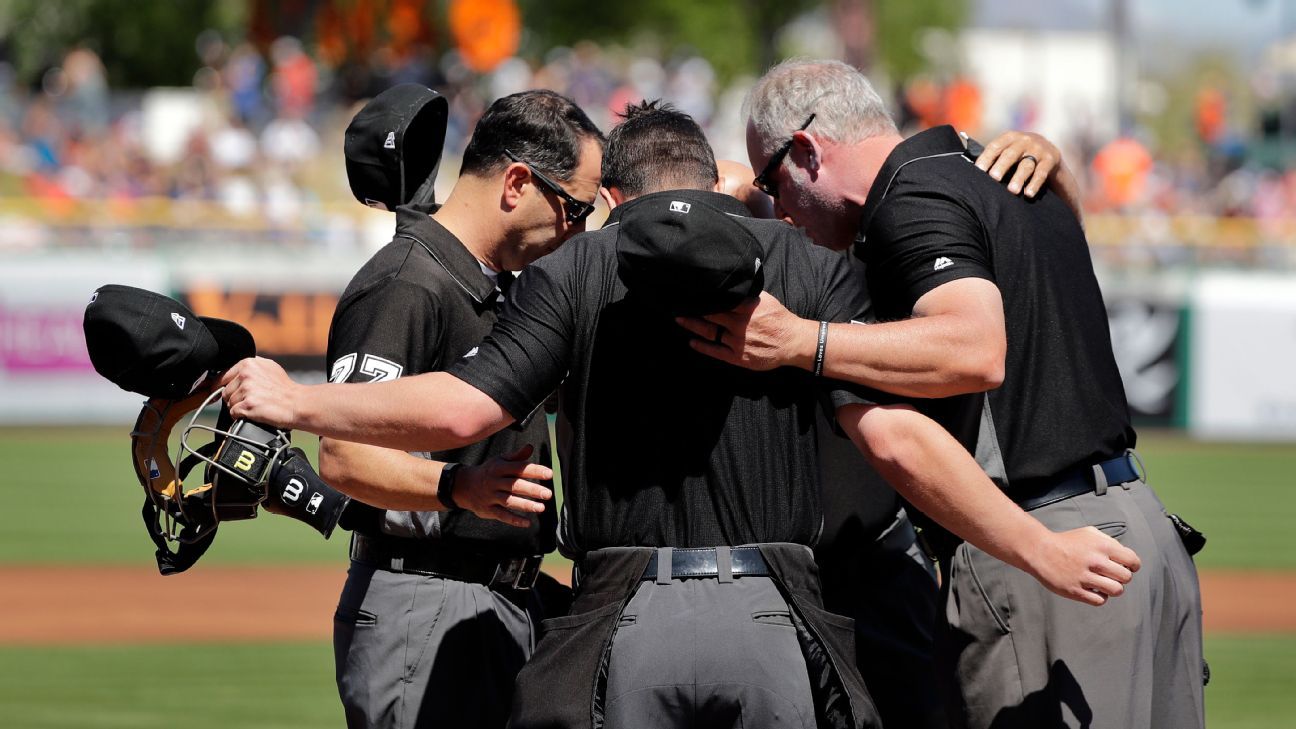
A new study reports that younger umpires are better at calling balls and strikes than older umpires and that umpires selected for recent World Series games have not necessarily been the best performers.
Boston University finance professor Mark Williams and a team of BU graduate students studied the results of nearly 4 million pitches from the past 11 seasons of Major League Baseball and found the following:
In 2018, umpires made 34,294 incorrect ball and strike calls, an average of 14 per game or 1.6 per inning.
Umpires showed a persistent two-strike bias. With two strikes, umpires were twice as likely to call a true ball a strike (29 percent of the time) than with a lower count (15 percent). The error rates have declined since 2008, when it was 35.2 percent, but over the 11 seasons, nearly one-third of the batters who struck out looking were called out on miscalls.
Strike-zone blind spots exist. In 2018, calls in the top left of the zone were miscalled 26.8 percent of the time and calls in the top right of the zone were missed 27.0 percent of the time. Meanwhile, calls in the bottom left were missed 14.3 percent of the time and calls in the bottom right of the zone were missed 18.3 percent of the time.
In 2018, the top 10 umpires averaged 37.8 years of age and 6.3 years of experience. The bottom 10 averaged 56.6 years of age and 23.1 years of experience.
For the 2018 World Series, none of the top 10 umpires with the best ball/strike rates were selected, while five of the seven umpires selected had a bad call rate higher than the league average. Ted Barrett, the 20-year veteran who was the crew chief, ranked as the worst umpire in 2018 with a bad call rate of 11.5 percent. Joe West, who began his umpiring career in 1978, was selected for his sixth World Series. He had the second-worst bad call rate in 2018.
The top umpires in 2018 were Mark Wegner, John Libka and Will Little.
For the study, the research team studied game data from 2008 to 2018 available at MLB.com, Baseball Savant and Retrosheet. Called pitches and strike zone overlay were populated from Statcast, Pitch F/X and Baseball Savant data. The researchers used visual technology to compare the strike zone to the actual calls, separating the correct calls from the incorrect calls.
The study did report that the bad call percentage has improved. In 2008, the bad call rate was 16.4 percent. In 2018, it was down to 9.2 percent and the missed call rate has improved each season.
Interestingly, walks have dramatically increased in the majors so far this season, to an average of 3.66 per game, compared to 3.23 in 2018. That would be the largest season-to-season change in walk rate since 2000-01, when it fell from 3.75 to 3.25, and the biggest increase since 1968-69, when it climbed from 2.82 to 3.45. That offseason, after pitchers dominated in 1968, the mound was lowered and the definition of the strike zone changed to make it smaller. No such changes were made for 2019.
According to ESPN Stats & Information data, 31.7 percent of takes in 2018 were called strikes. This season, 31.2 percent of takes have been called strikes. With two strikes, in 2018, 11.5 percent of takes were called strikes, while that number is 11.1 percent in 2019. In both seasons, ESPN data says 12.2 percent of those pitches were in the strike zone, so umpires have perhaps been calling fewer third strikes so far, leading to the increased walk rate.
Tagged under
The truth about Michael Jordan's MLB prospects: 'I swear, he was going to the majors'
Published in
Baseball
Friday, 05 April 2019 12:05
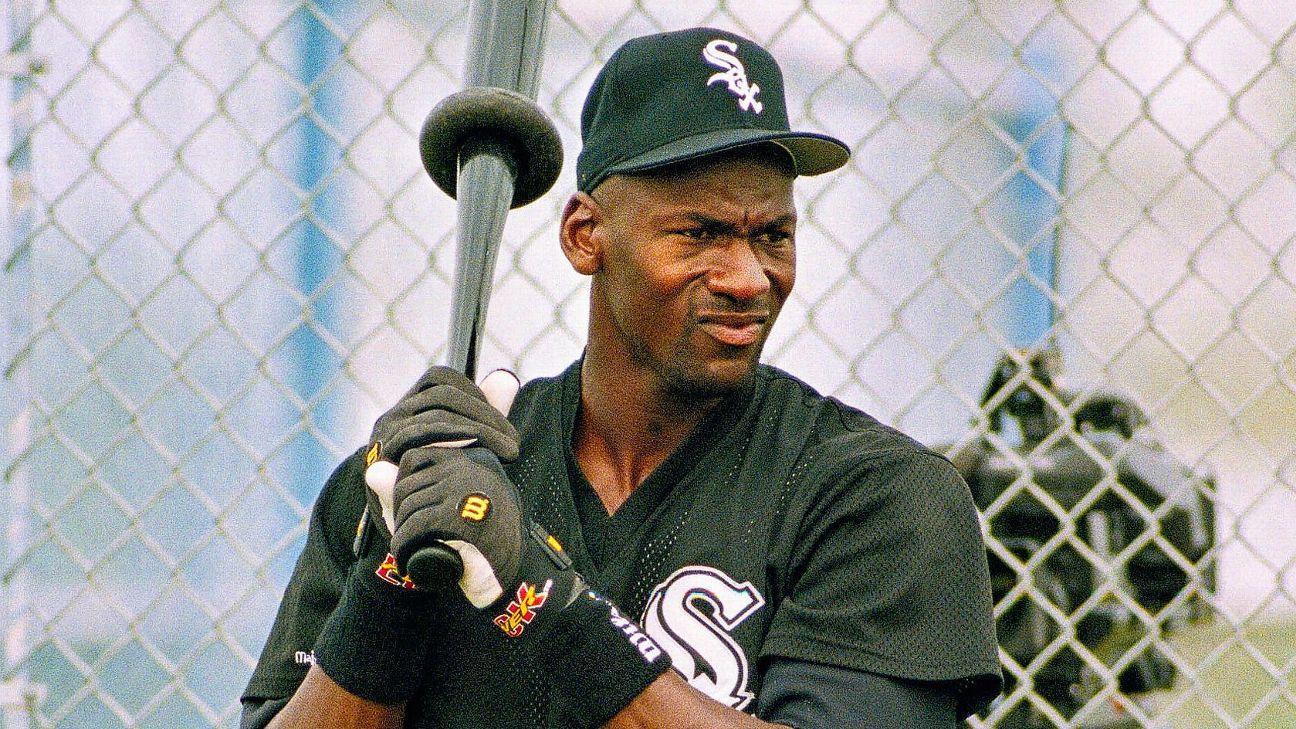
He has made it very exciting tonight. With the Barons leading 5-1, Jordan steps in for the fourth time ... two of his three at-bats were near homers ... he skied deep to left center when he hit the ball to the wall in the fourth, and then in the sixth, Jordan pulled the ball a little bit more and missed by 2 feet ... Fly ball deep to left again, Ratliff going back, back to the warning track, looking up ... IT IS GON-ZO JORDAN! He's done it!
-- Curt Bloom, Birmingham Barons play-by-play announcer, July 30, 1994
The Barons don't play at Hoover Metropolitan Stadium anymore. But until they moved to Regions Field in downtown Birmingham in 2013, the facilities at the old ballpark south of the city paid homage to some of the greats who had passed through. There was the Rollie Fingers Bullpen Deck, named for the Hall of Fame reliever who had pitched for the A's farm club there in 1967 and '68, and the Robin Ventura Pavilion, honoring the third baseman who had been a Baron in 1989 before getting called up to the Chicago White Sox, and the Frank Thomas Picnic Area, dedicated to the Hall of Fame slugger who put a Double-A Hurt on Southern League pitchers in 1990. The dining facility? Well, that bore the name of a certain, .202-hitting right fielder for the 1994 Barons.
There was a certain delicious irony to calling it The Michael Jordan Banquet Hall. After all, he started quite a feeding frenzy 25 years ago on the night of April 8 at the Hoover Met when he made his official professional baseball debut. Wearing No. 45, his old Laney (North Carolina) High number, the 31-year-old émigré from basketball drew a crowd of 10,359, as well as 130 members of the media. They watched him fly out in his first at-bat against Chattanooga starter John Courtright. For the night, and for the record, he went 0-for-3 in a 10-3 loss to the Lookouts. The crowd went home mildly disappointed.
Jordan is long gone from Birmingham, and so are most of the players and coaches who wore the Barons uniform that year. The skipper, Terry Francona, is now in his 19th year of managing in the bigs, with Hall of Fame credentials that include the breaking of the Boston Red Sox's 86-year curse in 2004, another World Series trophy three years later and two more trips to the Fall Classic, including one with his current team, the Indians. Of the players on that '94 roster, 20 were either coming down from, or going up to the majors. Jordan never made it to the bigs, but at least he could console himself with his and the Chicago Bulls' second NBA three-peat.
Nowadays, sports fans look upon his foray into baseball as a whim, and when they look up his numbers and see that he batted .202, they conclude that his baseball career was a bust. Just like that opening night crowd in '94, they walk away from the memory mildly disappointed.
They could not be more wrong.
I could not have been more wrong.
Just ask Curt Bloom, who's still in Birmingham, calling Barons games for the 27th straight season. "Not a day goes by that I don't think about that '94 season," Bloom said. "I spent 150 days with Michael Jordan. I played basketball with him -- I remember trying to set a pick for him in a pickup game, only to have him tell me, 'I don't need that.' Our daughter Chloe will turn 25 this August -- she was born right after Michael rubbed my wife's belly for good luck. I saw him struggle for a few months, but I also saw him become a ballplayer right before my eyes. He worked his butt off, but he enjoyed himself and bonded with the team.
"I swear, he was going to the majors."
Or ask Mike Barnett, who was the batting coach for the Barons that season and is back with Francona as both the Cleveland Indians' replay coordinator and an organizational hitting instructor. "Michael would go after it five times a day," Barnett, aka Barney, said. "In the cage before breakfast. Regular batting practice. Soft toss. Game BP. Then, after the game, he was back in the cage. His hands were blistered and bleeding, his intensity was off the charts. Don't look at his batting average. Look at his 51 RBIs -- he was never overwhelmed by the moment. He could fly -- look at the 30 stolen bases. He hadn't played since high school, and he was holding his own in Double-A, which is filled with prospects. By August, those routine fly balls in BP were starting to go out. I'm not sure I've ever seen something as beautiful on a baseball field as the time Michael Jordan hit the ball into the gap and raced around to third for a triple. Two more seasons, he would've been a legitimate extra outfielder for the White Sox, maybe even a starter."
And if you don't believe them, ask Tito. "He had it all," Francona said one morning during spring training in Goodyear, Arizona. "Ability, aptitude, work ethic. He was always so respectful of what we were doing and considerate of his teammates. Granted, he had a lot to learn. I remember once, we're up 11-0 against Chattanooga, and Michael doubles. Then he steals third! I'm pantomiming an apology to Pat Kelly, the other manager, and he's laughing. After Michael comes in, 'I'm like, 'What are trying to do, get us killed?' And he says, 'Well, in the NBA, when you're up by 20, you try to go up by 30.'
"I do think with another 1,000 at-bats, he would've made it. But there's something else that people miss about that season. Baseball wasn't the only thing he picked up. I truly believe that he rediscovered himself, his joy for competition. We made him want to play basketball again.
"And he made me a better manager."
Stat lines can tell you a lot. But in the case of Michael Jordan's 1994 entry, it doesn't say anything about the nice bus he got for the Barons, the Yahtzee and Spades games, the pingpong battles and English lessons with catcher Rogelio Nunez, the homage to the Birmingham Black Barons, the night Charles Barkley took over the clubhouse, the thousands of baseballs he signed, the hundreds he hit out of the park in BP, or the epic 4-on-4 pickup game at Rime Village, the players' apartment complex in Hoover.
The standings that year also leave out a lot. They don't tell you that the '94 Barons had a miraculous season.
After all, how many last-place Southern League teams can claim they're responsible for winning two World Series and three NBA titles?
THE NARRATIVE OF Michael Jordan's brush with baseball has never quite jibed with the reality, which is a little surprising given his visibility as the greatest of all time. There was always an inscrutable quality about him -- he was both above the rim and down to earth -- but that doesn't fully explain how we messed up. When he announced his retirement from the Chicago Bulls on Oct. 6, 1993, he was still in mourning over the murder of his 56-year-old father, James Jordan. So when Michael called another news conference on Feb. 7, 1994 to announce his intentions of going to spring training with the White Sox, a team that happened to be owned by Bulls owner Jerry Reinsdorf, people jumped to all sorts of conclusions. The decision, many felt, was a tribute to his father, who loved baseball and thought his son could follow in the footsteps of two-sport stars Deion Sanders and Bo Jackson. Or, for the suspicious, it was a way to play and lay low while waiting to get clearance from the NBA after a gambling red flag. Or, for the cynical, it was a vanity project that could sell a whole new line of Jordan merchandise.
In reality, Jordan had started to think about giving up basketball for baseball even before the summer of 1992's Dream Team. He was tired of the basketball grind and all the great expectations, and he wanted to see if he could still play baseball, like his father told him he could. Hey, Mr. Basketball was once North Carolina's "Mr. Baseball," as chosen by the Dixie Youth Association. Never mind that he was 12 at the time.
But baseball is hard, and it was made even harder for Jordan by the winds of skepticism. That spring in Sarasota, as fans flocked to see him in a baseball uniform, trigger-happy judges rendered their verdicts. Seasoned ballplayers, journalists and traditionalists curled their lips. I was one of the doubters. I wrote a cover story for Sports Illustrated ("Err Jordan") that mocked his swing, questioned the sanity of the White Sox and ended with, "Somewhere men are laughing." The SI editors upped the anti-ante with a cover billing that read, "Bag It, Michael: Jordan And The White Sox Are Embarrassing Baseball."
The only saving grace of the story was that it noted that he was working really hard. For most of that spring, his batting tutor was Walt Hriniak, whose hit-to-all-fields philosophy worked well with some, but not all players. Because Jordan hadn't played since he quit baseball two games into his senior year of high school, the lessons were a little like Einstein teaching a sixth-grade student arithmetic.
On March 31, Jordan was assigned to Double-A Birmingham, a pretty heady stop given his inexperience. They started lining up right away -- Barons fans wanting to buy tickets, reporters wanting a word with Tito. But the season was still a week away, so Mike Barnett went to work. "Walt was a great batting coach," Barnett said now, at the Indians' spring complex. "But his school of hitting wasn't quite right for Michael. He was standing way off the plate and diving into the pitch. I moved him closer to the plate and got him to stride forward into the ball and use his hips and those long arms of his. I figured the pitchers were going to challenge him to hit their fastballs."
Jordan also got a quick lesson in minor league life from Francona. "He wanted to know if we flew between cities. I had to tell him that we rode buses. Birmingham to Orlando? 12 hours."
Jordan did get one last look at the big leagues in the April 7 Windy City Classic between the White Sox and the Cubs at Wrigley Field. The batting lessons seemed to be paying off: he went 2-for-5 as the crosstown rivals played to a 4-4, 10-inning tie.
He went hitless in his first two official games, but got two hits against Knoxville in his third. By the end of the opening six-game homestand, he was batting .250. He had also been working behind the scenes with the Thrasher Brothers transportation company to get the Barons an upgrade from the old Trailways bus they had used the previous year. Said Francona: "Michael had asked me, 'What if I get us a bus?' I don't want to get fired, so I got permission, and the next day, four new buses showed up in our parking lot. The first one must've been a bus for a rock group -- really nice for Michael and me and the coaches, but no room for the other players. We ended up choosing a really nice bus that could've been for The Partridge Family. Michael autographed the outside, and the Jordancruiser was born."
So while it's true that Jordan did "get" them the bus, contrary to popular legend, he did not buy it. The Thrasher Brothers got what they were looking for -- publicity. As for the players: "I wanted to kiss it," said Kenny Coleman, a utility infielder on the team. "Our old bus had no temperature control. It was either too hot or too cold. The new one felt like a spaceship."
On that first road trip, Jordan took off like a spaceship. He went on a 13-game hitting streak that left him with a .327 batting average. He looked like GOAT 2.0. But, as Barnett said: "It was bound to end. I kept waiting for the pitchers to stop challenging him with fastballs and start throwing him breaking balls, and by the end of April, they were."
It was around this time that a freelance writer from Portland, Oregon, named Jim Patton showed up to do a book on Jordan's first season. The trouble was that he didn't get clearance from David Falk, Jordan's agent, so he quickly discovered that his access was going to be severely limited. Still, that didn't stop him from hanging around all season and writing "Rookie" (Addison-Wesley 1995), an amusing and observant look at that season.
"It didn't sell at all," Patton said during a telephone call from Italy, where he's working on a book about sex trafficking. "A lot of the reviewers were like. 'It's no good because Patton didn't have access,' but that was sort of the point. Anyway, I did get one rave review. [The reviewer] called it 'smart, funny and totally ignored.'"
In the book, the reader meets the Barons' dog mascot, Babe Ruff, and hears "Sirius" by the Alan Parsons Project, the Bulls' theme song and Jordan's walk-up music. Patton's description of the time Jordan lost his bejeweled necklace in right field, necessitating a search party every half-inning, is a study in irony, ending with its discovery and "the biggest ovation of the night."
Although Jordan refused to sit down with him, Patton was there when he gave a revealing postgame news conference in Orlando the night after the Bulls were eliminated from the playoffs. Asked how he was fitting in, given the age difference between himself and his teammates, he said, "I feel older than these guys in a sense, like their big brother, and I try to tell 'em what's right and wrong in certain situations, like dealing with the press. In other ways, I feel like their little brother: they're teaching me to play the game of baseball. In terms of who I hang out with, I hang out with everybody."
It's immeasurable and overlooked, but the ability to get along is an essential tool in baseball, especially given the long and arduous schedule. And Jordan had that knack. "He was great with everyone," said Coleman, who's now a senior executive with the Southern Company utility. "We had this pingpong table in the clubhouse, and the best player was Rogelio Nunez, our Dominican catcher. He and Jordan would go at it all the time, but almost every day, Michael would give him a different English word to learn -- and $100 for each word he did. By the end of the season, Nunie's English was much better, he was richer, and Jordan was beating him in pingpong.
"Because I played basketball at the University of New Haven, I loved getting on the court with [Jordan]," Coleman said. "But it wasn't just the play that bonded him to us. When he needed baseball advice, he leaned on us. Kerry Valrie basically taught him how to play the outfield. We saw how good he could be, and we became invested in making him better."
Jordan also hung out with the coaches a lot. There was the age factor, of course, and the shared life experiences, but there was also Yahtzee, the dice game that Francona taught him back on the first road trip. "We played it all the time," Francona said. "This still makes me laugh. One night, he's in the office after a game in which we got only four hits, and I look at the box score while we're playing Yahtzee and see that he had two of them. I say, 'Michael, you were half our offense tonight.' And without missing a beat, he says, "Not the first time in my life that's happened.'"
Jordan would occasionally deign to play hoops with the mortals. "I can safely tell you this now," Francona said, "but if I told you back in '94, I might've gotten fired.
"We had just come back to Birmingham after a Sunday morning game in Huntsville [a 5-4 win on May 22, in which Michael went 0-for-5]. We decide to play a 4-on-4 game at Rime Village, where a lot of the players stayed. The three coaches plus Michael versus four of our better basketball players."
Scott Tedder, a 6-foot-4 outfielder who was the all-time leading scorer as a shooting guard at Ohio Wesleyan, was one of the players. "Let's see," he said from his office at Hibbet Sports in Birmingham, where he's a real estate manager. "It was me, our catcher Chris Tremie, outfielder Kevin Coughlin and pitcher Brian Givens, who was like 6-6. The game was to 16, win by two. One point for a basket, two points for a three."
"Nobody was watching us at the start of the game," Barnett said, "but by the end, there were hundreds of people ringing the court."
"This was back in the day before cellphones," Tedder said. "Word traveled fast."
"Me and Barney were just along for the ride," said Kirk Champion, who was the pitching coach and still works in the White Sox organization. "Once you gave the ball to either Tito or Michael, you weren't going to see it again."
"Scott was a really good shooter," Barnett said.
"I hit maybe four 3s," said Tedder, who's now in the Ohio Basketball Hall of Fame. "But you could tell Michael was holding back. When we get up 15-11 -- one more basket to win -- Michael says to me, kind of matter-of-fact, 'Kid, you're not going to score any more.' The next thing we know, we've lost, 17-15, and the coaches are celebrating."
That oh-fer earlier that day had dropped Michael's average to .221. His batting average for May was just .165. While he couldn't hit curveballs, he did get a chance to hit golf balls with two of the best and one of the worst. The day after his average dropped below the Mendoza Line (.200) for the first time, Jordan played in a charity tournament in Birmingham along with Lee Trevino, Arnold Palmer and Barkley. Later that night, Barkley and Bills linebacker (and Birmingham native) Cornelius Bennett enlivened the Barons' clubhouse after a 4-1 defeat.
To honor former Black Barons Satchel Paige and Willie Mays, and maybe change his luck, Jordan began wearing his pants high in the style of the Negro Leagues. That didn't help his average, but Barnett assured a reporter that "his average has gone down, but he's actually a better hitter than he was during his 13-game hitting streak."
Looking back 25 years, Barnett sees the challenge for Jordan as twofold. "Before you can hit breaking balls, you have to recognize them, and that takes time and experience," he said. "But even then, after you have the epiphany, you have to learn how to act on it, how to pounce on the hangers. He was getting to that stage."
As best as they could, the coaches tried to keep Jordan's spirits up. They pointed out that every aspect of his game was getting better. Said Barnett, "On a scale of 20 to 80, his throwing arm went from 20 in spring training to 50 by August." But there was no doubt that he was getting down on himself, especially after his average dropped to .186 on July 29.
That's why that first home run was so important. It came on Saturday, July 30 on his 354th at bat of the season, in front of the Barons' largest crowd (13,751) since the Hoover Met opened in 1988. With the Barons leading the Carolina Mudcats 5-1 in the bottom of the eighth, Jordan hit a 2-0 fastball from Kevin Rychel over the left-center field fence. He slowly circled the bases and then was mobbed at home plate as he pointed skyward, mindful that he had just given his father, born on July 31, an early 58th birthday present. "It still makes me emotional because I wish he was here to see it," Jordan told reporters afterward. "But I know he saw it."
"What a moment," Bloom said. "It still gives me chills. Yes, I'd been hoping I could use my 'Gonzo' home run call for Michael before the end of the season, but I was mostly happy for him because I know how hard he had worked to earn it."
The first two Barons to congratulate Jordan were the batters coming up behind him in the order, Troy Fryman and Kenny Coleman. "I'm the little one," Coleman said. "Number 25. It was like watching history. It felt like a scene from "The Natural." I kept expecting the light tower to explode."
For the record, the ball was retrieved from beyond the fence by two young fans, Eugene Stancil and Nick Parker, who returned it to Jordan in exchange for two autographed baseballs.
Two autographed baseballs are also what Knoxville Smokies pitcher Jeff Ware got the day after he gave up Jordan's second homer on August 8, a three-run blast that helped the Barons to an 8-6 victory at the Hoover Met. As Ware described it for Rob Neyer in his oral history of the season for Complex two years ago, "I talked to Jordan the next day in the outfield. ... He was great, seemed like just another guy on the baseball team. I got two baseballs signed, which I still have."
THAT AUGUST, during the Major League Baseball strike, I took a trip to Birmingham to see for myself. Jordan was still well below the Mendoza Line, but as I watched him hit rope after rope in a darkened cage at the Hoover Met, I realized I had been wrong. He had a big league swing with bat speed, and he was working his butt off with Barnett. I decided to write a mea culpa. The SI editors read the piece, then told me to bag it.
Jordan hit his third home run on August 20, a solo shot off Glen Cullop in the seventh inning of a blowout 12-4 win over the Chattanooga Lookouts at the Hoove. He was hitting .195 at the time, but closed out the season with one three-hit game and a pair of two-hit games that raised his average above .200. In his last official game, a 4-2 win at Huntsville on September 3, Jordan went 0-for-4 to finish at .202.
That's not bad for someone who hadn't played organized baseball since his senior year of high school. Then, in the Arizona Fall League, against even better competition, he hit .255. "He was on his way, I thought," Barnett said. (Barnett certainly was -- he would later become the hitting coach for the Toronto Blue Jays, Kansas City Royals and Houston Astros.)
More important, he had fallen in love with baseball. "I know how he felt," said Tedder, who was once one of the top salespeople in the country for Jordan apparel. "In basketball, you're in a hurry to get out of there. In baseball, you hang around and make friends for life."
There was just one problem, though. Jordan didn't want any part of the MLB work stoppage. So, in March 1995, when there was no end in sight to the strike, he announced he was returning to the NBA. The White Sox lost a fifth outfielder. The Bulls gained three more titles.
Through an intermediary, Jordan politely declined to be interviewed for this story or respond to a few questions. One of them was about his affection for baseball. But his answer comes through loud and clear in "For The Love of The Game: My Story," which he wrote with the assistance of sportswriter Mark Vancil in 1998. Here's Jordan on his season with the Barons:
How would I describe my baseball experience? I would describe it now the same way I described it then. Every moment was a warm one. I remember looking up in the sky from time to time and being amazed at how much my life had changed. I had no fear. Just a warm feeling. I can't describe the sense exactly, but now it seems like I was living a dream.
Would he have made the majors? Jim Patton is still skeptical. "Yes, his hitting was improving," the author said. "But he was 31 and running out of time. Maybe Francona and Barnett have a sentimental thing there. I just don't see it."
One thing is certain. That summer did Jordan a world of good. "It was like a spiritual retreat," said Vancil, now the managing partner of Williams Inference, a business intelligence concern. "It was a chance to turn down the volume and go back to a place where he was a 19-year-old kid again. He came back to basketball a different player."
Twenty-five years and five titles later, Michael and Tito still stay in touch. "We meant a lot to each other," Francona said. "Managing him was the best learning experience I've ever had. I loved that season. He showed us grit and courage and grace under pressure. And in return, we made him feel young again."
Gonzo Jordan. He's done it.
Tagged under
Leicestershire close in on rare Sussex scalp after Tom Taylor's ten-for
Published in
Cricket
Sunday, 07 April 2019 10:12
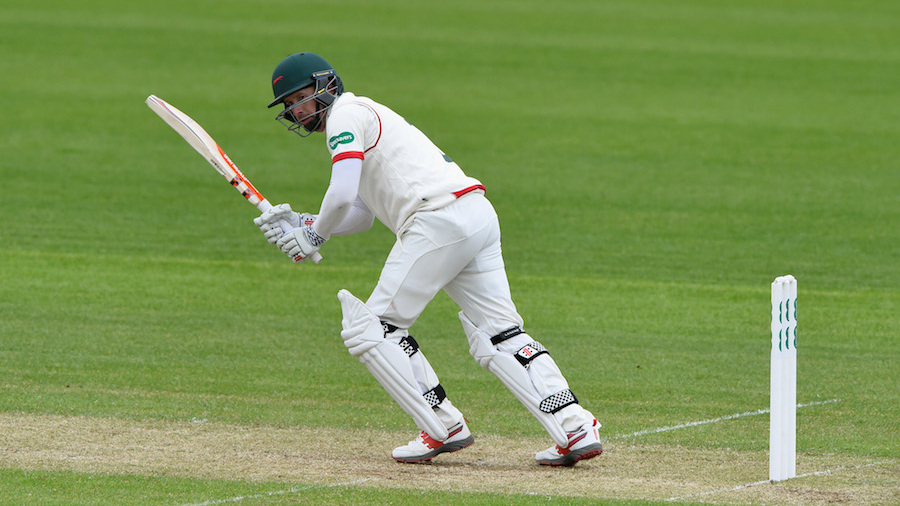
Leicestershire 252 and 99 for 1 (Horton 53*) need a further 131 to beat Sussex 173 and 308 (Ackermann 5-69, Taylor 4-75)
Leicestershire were on course to claim their first County Championship win over Sussex for 17 years after making a positive start to their pursuit of a target of 230 at Hove. Skipper Paul Horton made an unbeaten 53 to take his side to 99 for 1 when rain arrived at tea and play was abandoned for the day at 5.35pm with Leicestershire still needing 131.
Debutant Hasan Azad helped Horton put on an unbroken 72 for the second wicket after David Wiese had pinned Ateeq Javid lbw with an in-swinger for 11.
Horton reached his half-century off 79 balls with seven fours but he needed a check by the Leicestershire physio after ducking into a Chris Jordan's bouncer which struck him on the helmet.
Their victory charge had been set up earlier in the day by offspinner Colin Ackermann, who finished with career-best figures of 5 for 69, and seamer Tom Taylor, who claimed four more victims to add to his six in the first innings for a match haul of 10 for 122, also a career-best.
Sussex had resumed on 211 for 2 - a lead of 132 - and in good batting conditions must have been confident of setting the visitors a target of more than 300. Instead, they lost their last eight wickets in adding a further 97, three of them for 11 balls at a cost of two runs during the morning session.
Taylor made a breakthrough in the first over when Stiaan van Zyl (41) feathered an outswinger to Lewis Hill, one of four catches for the Foxes' wicketkeeper.
Luke Wells and Harry Finch added 23 with few alarms before Sussex's middle order was wrecked by Taylor and Ackermann. Wells lost patience on 48 and also lost his middle stump aiming an expansive drive at Taylor. In his next over Taylor had Wiese leg-before to a ball which kept a touch low while Sussex captain Ben Brown was lbw playing back to Ackermann for his second duck of the match.
Sussex rebuilt through Finch and Jordan, who added 49 for the seventh wicket, but when it appeared that they were wresting back the initiative Ackermann completed his five-for with two wickets in three balls thanks to athletic catches at short leg by Azad. Jordan was held off a top-edged sweep and Ollie Robinson became the sixth Sussex batsman to go for a duck in the match, again off a misjudged sweep.
The innings ended shortly after lunch. Danny Briggs was caught behind off Taylor's outswinger and Finch, with only last man Mir Hamza for company, drove at Chris Wright and Hill did the rest behind the stumps.
Tagged under
Notts show class as Joe Clarke is left waiting on another ton
Published in
Cricket
Sunday, 07 April 2019 12:05
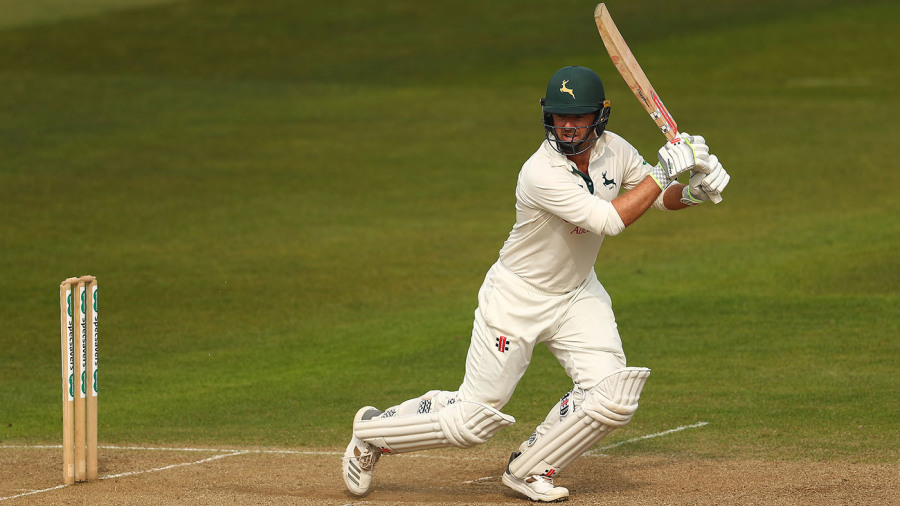
Nottinghamshire 408 and 329 for 5 (Clarke 97*, Nash 75, Duckett 61, Mullaney 52) lead Yorkshire 291 (Root 73, Patel 3-31) by 446 runs
Two centuries on debut for his new county would be quite a way for Joe Clarke to begin life at Nottinghamshire. But he will not know until the final morning if that opportunity will present itself. He finished the third day against Yorkshire at Trent Bridge on 97 not out and with Nottinghamshire already holding a lead of 446, and clearly planning an overnight declaration, it would be perfectly permissible to pull the innings without a second thought.
At 22 years and 316 days he is in touching distance of becoming the youngest batsman to score two hundreds in a match for Nottinghamshire.
As he knows he must be, he was philosophical about the outcome. "They said they'll think about it in the morning - what happens happens," he shrugged, knowing that the only dignified response was for him to put team ahead of individual feats.
The decision rests with his captain, Steven Mullaney. An extra over or two does not sound much, but captains have nightmares about allowing such a liberty and the opposition being nine down at the end. Team ethic is a precious thing, so is team morale. Michael Atherton once declared an England innings in the 1994-95 Ashes series with Graeme Hick two runs short of his first Ashes hundred - and that was not even at the end of the day. That didn't go down well.
Clarke's debut has already been lustrous enough. He has played sublimely, typically stylish through the offside. His unbeaten 97 came from only 125 balls and followed 112 in the first innings. Nottinghamshire have so far looked a class above. They established a first-innings lead of 117 before lunch on the third day and then batted again with great contentment, amassing a further 329 for 5 at an indecent rate of 4.70. With the floodlights slicing through a cold April evening, Clarke took single off the first ball of the final over from the part-time offspinner Adam Lyth only for Samit Patel to hack at the rest of the over without getting him back on strike.
Three batsmen joined Clarke in passing 50: a free-spirited contribution from Ben Duckett, who reverse-swept Joe Root for four to reach his fifty and who already has more than 400 first-class runs this season; a punchy 75 from Chris Nash, before Yorkshire were finally trampled into the dirt by Mullaney's hearty 48-ball effort. Nothing was more dismissive than his straight six late in the day against the medium pace of Matthew Waite.
Duckett flirted with second slip before Duanne Olivier had him caught in that fashion. Nash mistimed a pull at the same bowler. Mullaney eventually dragged another delivery from Waite into his stumps.
On a Facebook group proclaiming the delights of the Yorkshire Dales (prospective incomers greeted with suspicion so best to say nowt else) the Broad Acres looked at their most resplendent. Blue skies shone over Clapham and Arncliffe, refreshing dips were taken in the Foss at Stainforth Force and lambs took their first uncertain steps into the world. The sort of glory that would have persuaded the old curmudgeon Philip Larkin to take off his bicycle clips in reverence, had he not saved that for Church Going instead.
Few things fill Yorkshire folk with exaltation more than the scenery of the Dales. Yorkshire cricket perhaps. But on the evidence of the first three days at Trent Bridge, it might be best to get some rain repellent on the walking boots. It's very early days, but against a strong side Yorkshire have been dipping their shoulder into the wind.
Yorkshire's coach, Andrew Gale, was left to assert that his side were capable of batting through the final day. They will be relieved (as will England) that they will have the services of Root, who caused brief alarm late in the day when he injured a finger on his left hand, diving to stop a cover drive from Clarke. No lasting damage, no thoughts of a scan, was the gist of Gale's assessment after medical staff had made a few precautionary checks.
Their attack - four right-arm seamers and some fill-in offspin from Root - looked predictable. They have three quicks, Matthew Fisher, David Willey and Tim Bresnan, missing here, but much onus rests with their newly signed South African Duanne Olivier. On Monday, an early judgment will be made about the quality of their batting.
Tagged under


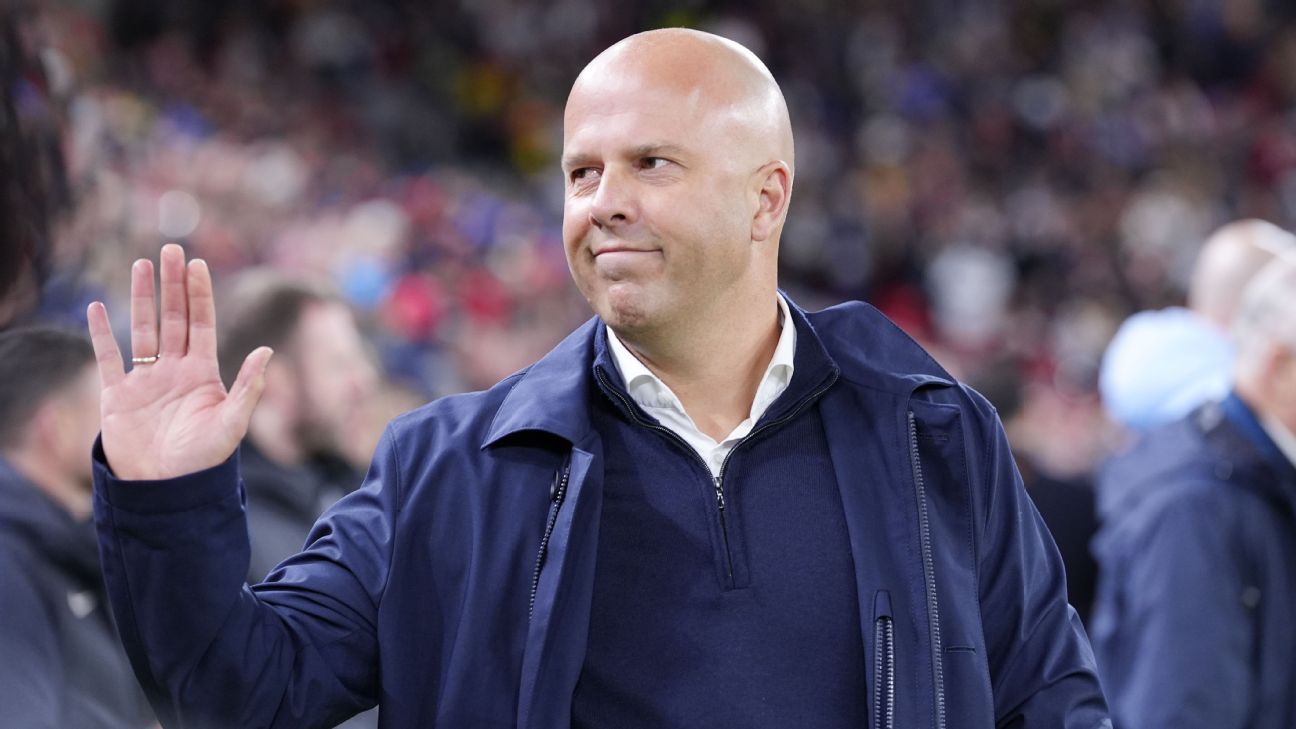









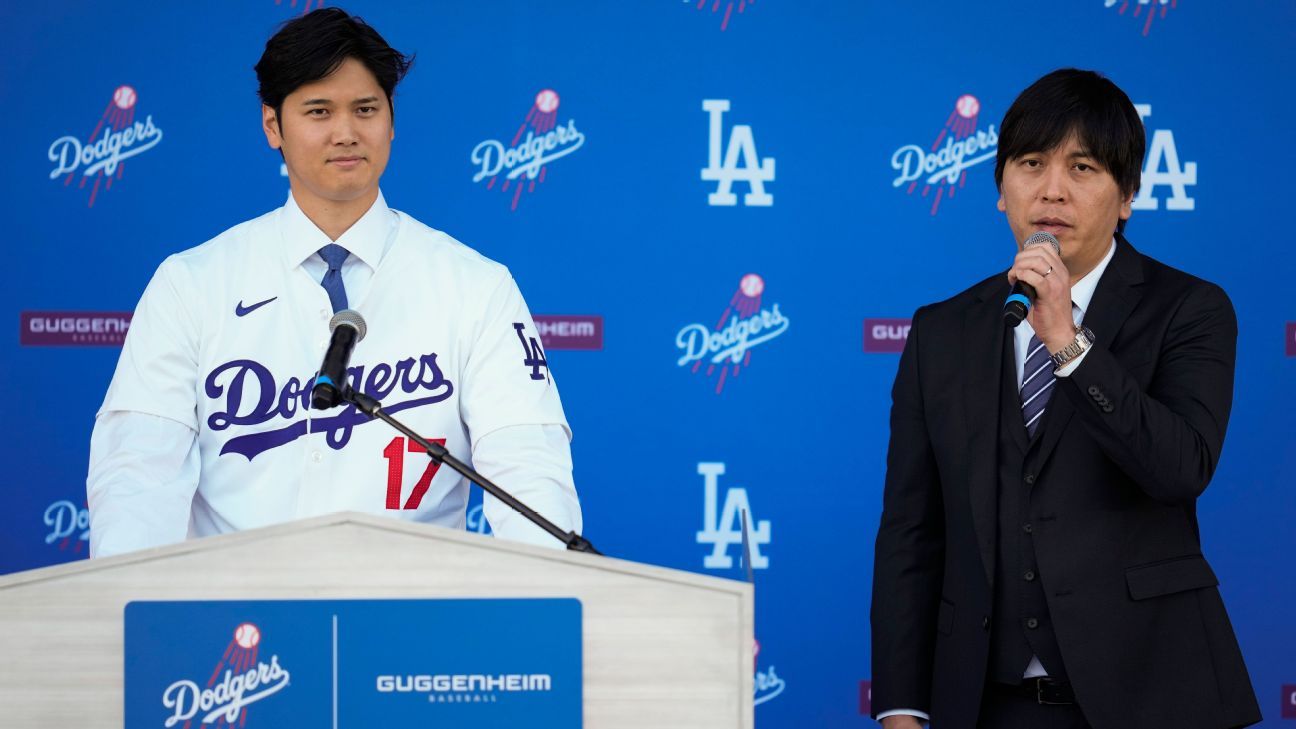
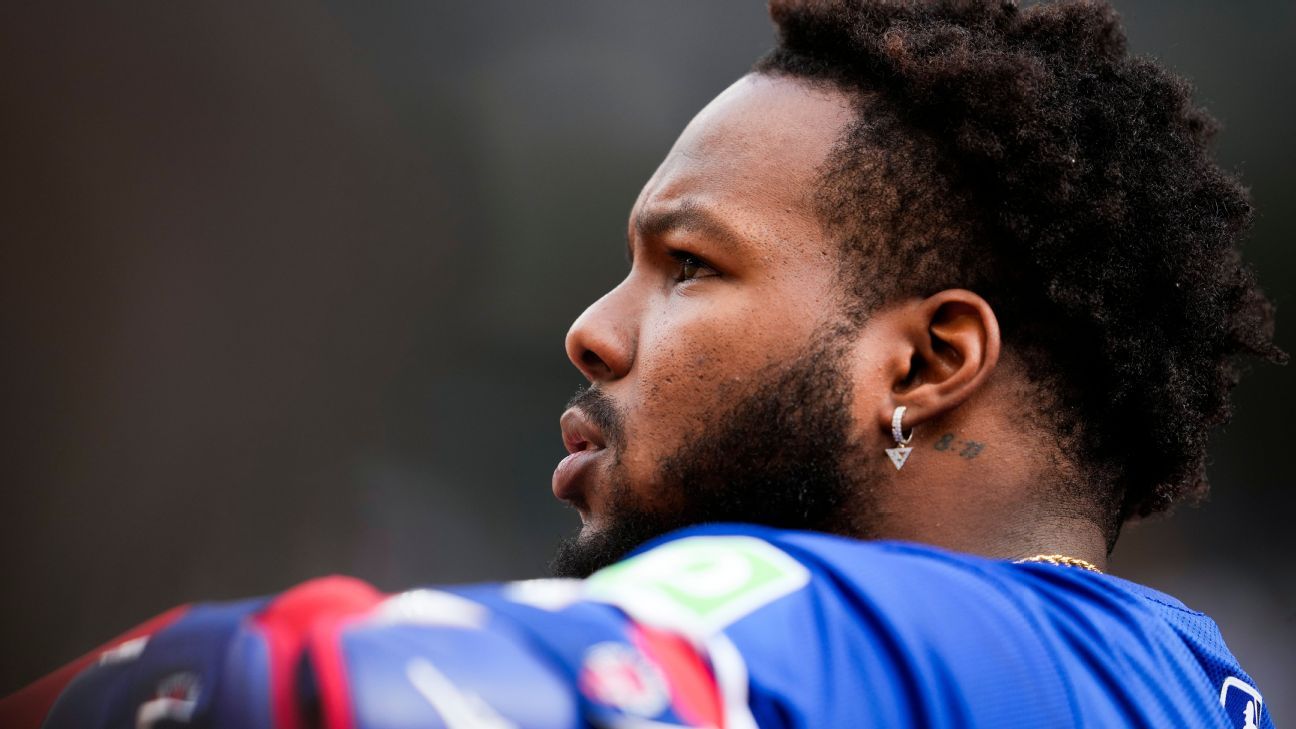

 Phone: (800) 737. 6040
Phone: (800) 737. 6040 Fax: (800) 825 5558
Fax: (800) 825 5558 Website:
Website:  Email:
Email: 






